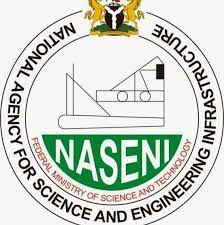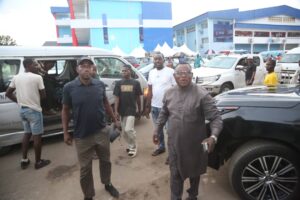
BY ALAPINI BILIKISU ABIODUN
The Federal Ministry of Agriculture and Food Security and the National Agency for Science and Engineering Infrastructure (NASENI) have begun talks on how to use their combined technical expertise and other resources to better targets for the development of allied industries, mitigate the effects of climate change, and implement smart solar irrigation for dry-season farming.
The goal of the developing partnership between NASENI and Agric Ministry is to improve the focus and deliverables towards achievement of the Renewed Hope Agenda by the President Bola Ahmed Tinubu administration, according to the three men who met in Abuja on November 6, 2023: Senator Abubakar Kyari, Minister of Agriculture & Food Security; Hon. Sabi Aliyu Abdullahi, Minister of State; and Mr. Khalil Suleiman Halilu, Executive Vice Chairman and Chief Executive Officer of NASENI.
The Minister, Senator Abubakar Kyari, provided an explanation of some of the key components of the government’s 8-Point Renewed Hope Agenda, stating that the success of his ministry’s agricultural sector serves as the foundation for about six of the eight socioeconomic recovery programmes.
As a result, the Minister praised Halilu, the EVC of NASENI, and his group for designating agriculture as one of the Agency’s primary focus areas. “I will not get tired of stating that my Ministry has been tasked by President Bola Ahmed Tinubu with implementing food security, one of the key initiatives in the Renewed Hope agenda’s eight points, along with five other initiatives,” the minister declared.
Senator Abubakar Kyari and the Minister of State met with Halilu during the visit, and all of the Ministry’s directors were in attendance as well.
According to Halilu, the Agency was prepared to work with the Ministry to adapt and transmit technologies in order to improve agriculture and attain food security.
Speaking to the highest-ranking government officials in the Ministry, Halilu stated that NASENI’s technical expertise, technology, and foreign partners were prepared to work towards making Nigeria self-sufficient in food production, processing, and exports.
He revealed that one of the initiatives being used to achieve this goal is the ongoing NASENI Scheme, which was started by the president and intends to restore roughly 50,000 damaged tractors nationwide in a bid to revive the large-scale farming culture.
He claims that in order to collaborate with the Agency, the management of NASENI has established partnerships with technical organisations in the country and abroad.
These partnerships are for the mass production of Unmanned Aerial Vehicles (UAVs), which are intended to be used for a variety of tasks such as maintaining afforestation, introducing solar-powered water irrigation to increase farming yields during the wet and dry seasons, processing food in the cold chain, and adding agro-allied value chain additions to preserve and process food in commercial quantities for exportation.
Crop traceability, the rice straw project, mitigating climate change through scientific and technological research and innovations by NASENI to increase food production, value addition, and ensuring Nigeria’s dependence on food imports decrease significantly are among the plans for collaboration with the Agriculture Ministry, according to Halilu.
We are starting agricultural development initiatives, ranging from production to commercialisation.
How we can add value to our agricultural products or raw resources before they are eaten or exported outside of our nation is what matters most.
Regarding foreign innovations that have been imported into our nation, we are also looking for the Ministry’s assistance in transferring, domesticating, and commercialising these technologies. This, in a nutshell, is our purpose for being here, Halilu said.
Since taking office, the EVC claimed to have received numerous suggestions regarding ways in which NASENI could enhance the value of agriculture, from production to market.
He revealed that approximately 40% of the funds raised during the Agency’s recent visit to the Belt and Road Initiative (BRI) Forum in China, which drew approximately $6 billion in investment, will go towards agriculture.
In addressing the importance of the gathering, the state minister conveyed gratitude for the visitation of NASENI’s EVC and his group, characterising the action as both progressive and nationalistic.
According to him, the moment has come to cease interministerial rivalry and competition. Instead, government institutions should adopt a new culture of cooperation and synergy.
He emphasised Senator Kyari’s earlier remarks that food security is currently a top priority for the federal government.
In order to actualise the government’s aims to alleviate poverty, create jobs, and address all other socio-economic problems in Nigerian society, he asked for alignments with the focus of the Agric Ministry by NASENI as well as other Agencies with relevant tasks.







